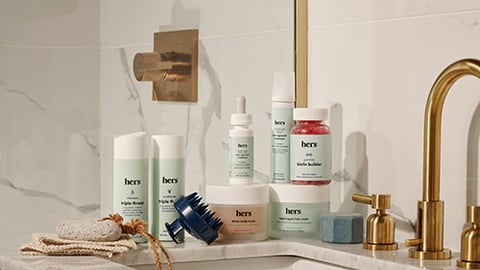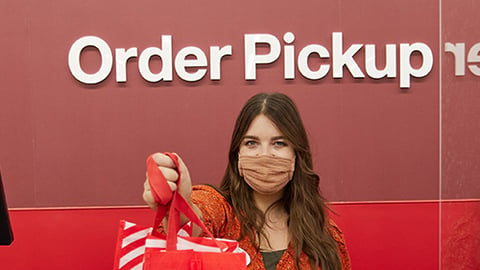DoorDash Will Be 3rd-Largest E-Commerce Banner After Amazon, Walmart: Report
Delivery service DoorDash Inc. will add $48.57 billion worth of gross merchandise value (GMV) sales in 2025, doubling 2020 sales, according to forecasts from Edge by Ascential’s market research arm, Retail Insight. Edge by Ascential analysts predict that DoorDash will become the third-largest e-commerce banner in the United States, behind Amazon and Walmart.com, by 2025.
This and other forecasts were made in an Edge Retail Insight report, "Seizing the Delivery Intermediary Opportunity," which reviews the state of the fast-moving on-demand delivery intermediary market and assesses the emerging retail channel’s future growth prospects for consumer packaged goods (CPG) clients looking to grow in e-commerce.
The Edge Retail Insight report reveals that the on-demand grocery market will continue to accelerate — even after lockdowns end and economies open up again — jumping almost 150% to grow GMV sales $76.27 billion by 2025. DoorDash will account for about a third of U.S. delivery platform sales by 2025, with Uber and Instacart racing up behind, with 20% each, according to the Edge Retail Insight analysts.
Originally a restaurant delivery service, San Francisco-based DoorDash expanded into grocery last summer to accommodate booming demand during the pandemic and is actively partnering with retailers in other categories. It recently grew its health-and-wellness offerings by partnering with Lola and Hims & Hers, enabling customers to have period, sexual wellness, personal care items and more delivered on demand. DoorDash also joined forces with drug store chain Rite Aid to provide same-day delivery of nonprescription health, convenience and wellness items, with average delivery in under an hour.
Uber's GMV sales — through its primary delivery intermediary banner Uber Eats — will reach $27.58 billion, according to report. San Francisco-based Uber recently partnered with instant-needs delivery startup Gopuff to offer delivery of everyday essential products to customers in 95 cities around the country through the Uber Eats app.
U.S. GMV sales growth at Instacart, which has also been expanding its partnerships outside grocery, will reach $27.33 billion by 2025. San Francisco-based Instacart recently upped its delivery speed by launching a new service called Priority Delivery that aims to bring grocery delivery in as fast as 30 minutes to 85% of U.S. households.
Target.com, meanwhile, will grow GMV sales by $24.44 billion, up from $14.87 billion in 2020.
"E-commerce is growing and evolving rapidly," said Deren Baker, CEO, Edge by London-based Ascential. "Consumer behaviors and shopping habits have been changed forever by COVID-19, and we are living now in the future of retail. The delivery intermediary market is an exciting, fast-moving space, defined by big mergers and acquisitions, market-moving announcements, and emerging rivals with new business models that are attracting the eye of cash-rich venture capital firms.
"One thing is for sure. Consumer packaged goods firms can’t ignore these companies in their quest to succeed in the new world of retail," he added.
“As more retailers cooperate with these intermediaries as a cost-effective way to scale up fulfilment capacity quickly, we see them becoming essential points of influence in a shopper’s purchase decision," noted Xian Wang, VP, Edge Retail Insight. "Brands must start treating intermediaries as customers to win visibility on these platforms. On-demand delivery will be a key subchannel in retail in the future, and CPG brands will need to work out who to partner with, and develop tailored product, pricing and promotional strategies to drive conversion on these platforms.”
The Edge Retail Insight report focuses on the major app-based on-demand food delivery groups that started out delivering meals for restaurants, but are now rapidly expanding into new categories, such as grocery and health and beauty. It doesn't take into account the new generation of rival apps that have popped up on the grocery delivery stage in recent months, threatening to complicate supply chains even more with their promises of groceries to consumers' doors in as little as 10 minutes. Take, for example, the German startup Gorillas, which launched its 10-minute delivery-by-bicycle service in the New York City area on May 30.
Minneapolis-based Target Corp. is No. 6 on The PG 100, Progressive Grocer’s 2021 list of the top food and consumables retailers in North America, with nearly 1,900 locations. Camp Hill, Pa.-based Rite Aid is No. 19 on The PG 100.












